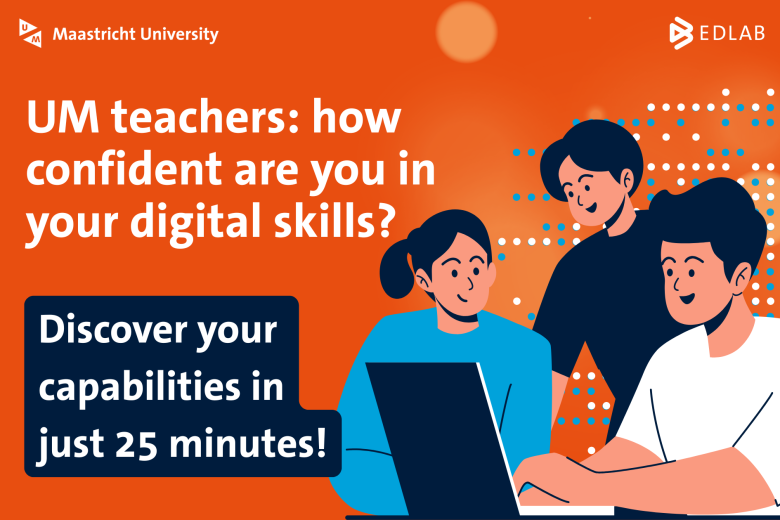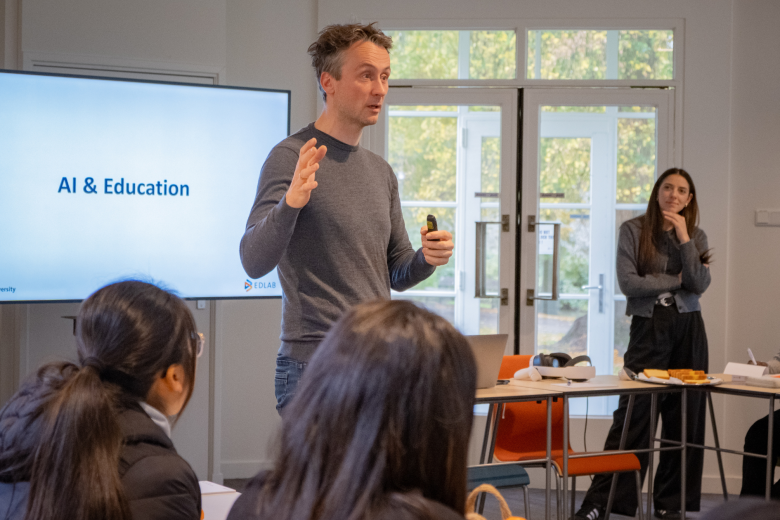How to make you stand up: the sit-stand desk
A growing body of research indicates that prolonged sitting is linked to health risks and depression, underscoring the importance of encouraging more standing.
At EDLAB, we are encouraging students and staff to work in a more dynamic way. The Education That Moves You project has introduced standing tutorials throughout the university that will not only make you more active but will also affect your health for the better.
Sit-Stand Desks
With the integration of technology, sit-stand desks are making their way into the market, allowing us to adjust the desk's height with a simple push of a button. These straightforward operations enable us to not only change our sitting times but also to transform our overall behaviour related to our sitting habits. Research has demonstrated that sit-stand desks can increase standing time by over 77 minutes during an 8-hour workday without any adverse impact on work performance.
Changing Times
While sit-stand desks themselves already reduce sedentary time, it has been shown that to significantly increase standing, interventions must be planned to encourage position changes. One effective method involves using software that adjusts the desk's height according to a predetermined schedule. The software will send a message, asking whether the user agrees with the change or would like to be reminded at a later time.
Education
Despite the increasing coverage in the media regarding the risks of prolonged sitting, these risks are still relatively unknown to many. Introducing standing work should, therefore, be accompanied by education on the benefits and the correct methods of standing. The need for education becomes especially evident when considering that sit-stand desks work significantly better among researchers in the field. This demonstrates that a mere introduction is not enough; reducing sitting times requires a genuine attitude change.
Go to EDLAB's Education That Moves You project page.
Also read
-
Teacher Information Points at UM
UM faculties now host Teacher Information Points (TIPs) that offer local, “just-in-time” and on-demand support for teaching staff. The aim is simple: to provide help that is closely connected to day-to-day teaching practice.

-
As a teacher, how confident are you in your digital skills? Discover your capabilities in just 25 minutes
Maastricht University invites all teaching staff to take part in the Jisc Discovery Tool pilot to explore your digital strengths.

-
UWC Maastricht students get a taste of education innovation at EDLAB
On 21 October 2025, EDLAB hosted students from United World College Maastricht for the second year in a row, as part of their Youth Social Entrepreneurship programme.
